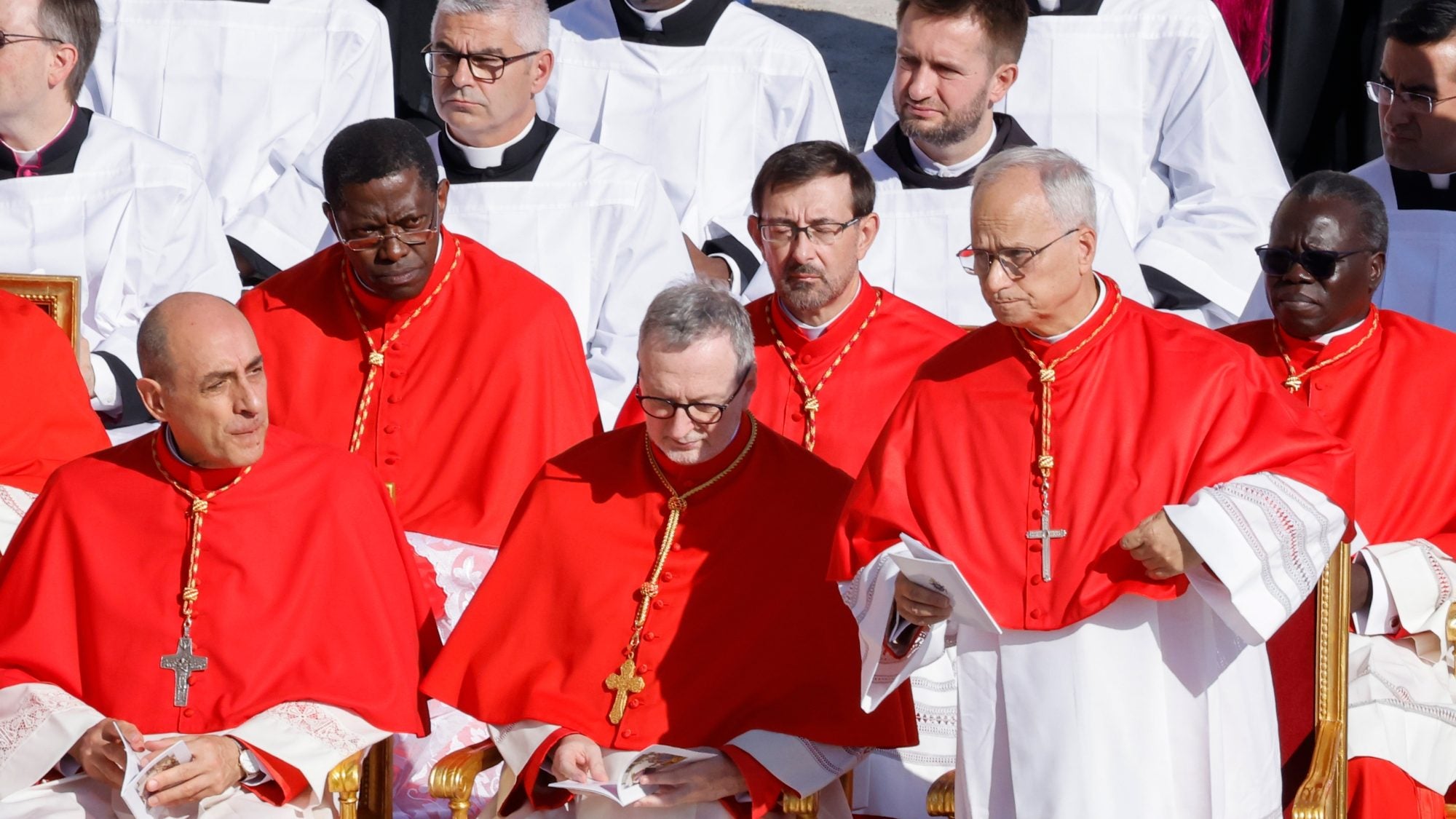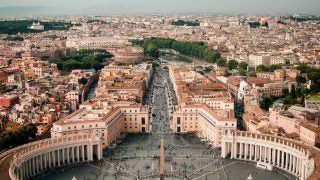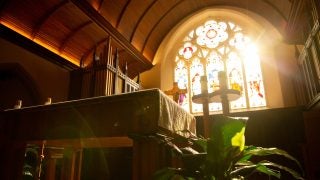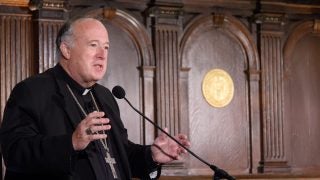At 12:09 p.m. on May 8, Georgetown’s Healy Hall bells chimed to celebrate the election of a new pope.
Cardinal Robert Francis Prevost, a 69-year-old Chicago native, has been chosen as the successor to Pope Francis. Pope Leo XIV, his chosen papal name, will be the first American to lead the Catholic Church in its nearly 2,000-year-old history.
Pope Leo XIV attended Villanova University in Philadelphia, Pennsylvania, and spent more than a decade serving as a missionary, leader of the Augustinian Order and bishop in Peru. For the past two years, he led the Vatican office that selects the next bishops globally.
“He’s as international as he is an American,” said Rev. David Collins, S.J., a professor at Georgetown and the author of The Jesuits in the United States: A Concise History.
In his first address, Pope Leo XIV spoke to the audience gathered in St. Peter’s Square not in English but in Italian and Spanish, opening with the words, “Peace be with all of you!”
José Casanova, a senior fellow at the Berkley Center, said Pope Leo XIV was not chosen because he was American, but because he is the best candidate to unify the Church today.
“He was not a bishop of the American Church, he was the head of the Augustinian Order,” Casanova said. “He’s an American without being identified with the polarization with the American Catholic Church. He can be a unifier.”
Learn more about how Pope Leo XIV’s American background may shape his papacy.
Why did it take so long for an American to be elected?
It’s not surprising that Pope Leo XIV is the first pope from the U.S., said Casanova.
Of the 267 popes elected, 217 have been from Italy. More international popes have been chosen in the last century, starting with John Paul II in 1978, who was from Poland.
With Pope John Paul II’s election, Collins said, “suddenly the imagination broadens.”
“It’s not just that we’re thinking outside the box — which is to elect a Pole or a German — now it’s not the same box anymore,” Collins said. “Pope Leo XIV was raised in Chicago, but he spent a considerable amount of time in Latin America and in Rome. There’s an international quality to him.”
The U.S. is also a relatively young country, said Collins. Until the early 20th century, the Catholic Church considered the U.S. as a missionary territory. The growing church in the U.S. needed support from Rome, including priests and religious sisters from other countries, he said.
Starting in the 20th century, the Church had more infrastructure, resources and people — there was a pivot, he said.
How will his American background shape his papacy?
Pope Leo XIV spent time in U.S. cities with large Catholic populations, Collins says, including his years in Chicago and undergraduate career in Philadelphia.
Collins said these experiences gave him insider knowledge of the U.S. Catholic Church and its challenges of secularization.
“He’s not coming from a country where Catholicism was the only option, but learned how to live vibrantly in a pluralistic society, so I think we can count on that from him,” Collins said.
Pope Leo XIV will also bring his background as a Chicagoan — as a very “open kind of person” — to the papacy, Casanova said. He added that the pope is a tennis player too.
And while Pope Leo XIV was born in the U.S., his time in South America will also shape his papacy, Casanova said.
“He’s a pope of the Americas,” he said.
Why did he pick his name?
The cardinal chose the name Pope Leo XIV, which is tied to Pope Leo XIII, who led the first Vatican Council from 1869 to 1870, said Vanessa Corcoran, an advising dean in the College of Arts & Sciences and a scholar of medieval religious history.
“Leo XIII brought the Catholic Church into the modern era in terms of social justice reform, including the rights of workers to a fair wage, and that aligns with how Leo XIV spent many years doing mission work in Peru,” she said.
Pope Leo XIV’s first words as pope were “peace be with all of you,” which sends a signal, she said.
“In this world that is seeing warfare and strife across multiple fronts, that message of peace will set the tone for his papacy,” she said.



